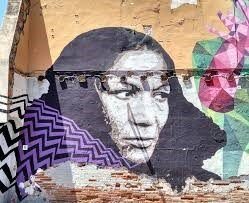How to improve mental health through storytelling

Migration contributes to the richness of one country’s cultural, social, and economic diversity. For the immigrant, it involves the poignant loss of all that is familiar at home and the challenges of a new and possibly hostile country. We could think of the immigrant’s experiences of loneliness as different, the loneliness of the outsider.
Immigrants are faced with immense difficulties—learning English and speaking it; the troubles of securing a job, finding housing, and accessing social and health services; and isolation, discrimination, and loss of their cultural and linguistic identities—all these impact core aspects of the newcomers’ sense of personal history, and their adaptive and coping capacities become reorganized around the multiple circumstances surrounding their decision and preparation to migrate and the actual journey to the new country. The migrant’s capacities, resiliency, and connectedness to loved ones and to supports are part of their protective shield against the fundamental vulnerability created by such unthinkable changes.
For millions of immigrants—not to mention the millions that are right now displaced because of war—ethnic prosecution and extreme poverty and famine, the impact of the losses, and the journey itself will be so profound and traumatic that finding themselves in some way as they once were will take a lifetime or will never happen. How does an immigrant make sense of so much? Think of what the Syrian and the Rohingya people are enduring. Think of anyone you know who is an immigrant. Perhaps this is part of your own story.
We are meaning-making beings and it is hard to think, but the sense we make of our experiences not only goes through words but also through our body. Dr. Besel van der Kolk, world expert in trauma says, “The body keeps the score.” Thanks to years of research and new technologies in the field of mental health and the science of neurobiology, today, we can understand trauma and we can support people who suffer from its impact to integrate what they have gone through and who they have become and are becoming. Creating new meanings through storytelling and making sense of what happens is one of the ways in which health can be restored, opening hope and possibility.
How can storytelling support and help immigrants making sense of their journey?
In 2012, Jonathan Adler, a professor of psychology from the Franklin W. Olin College of Engineering, created a study called “Living into the Story: Agency and Coherence in a Longitudinal Study of Narrative Identity Development and Mental Health over the Course of Psychotherapy.” The results indicated people internalize the stories that they tell themselves.
The same study found that the actual events that happen to people don’t hold much water compared to the story that people choose to tell themselves. The study was done through an in-depth, thematic coding of 47 case studies. Adler found out that people grew more empowered when they took charge of their stories. They gained a sense of control, a stronger sense of agency of what was happening in their lives. This is one of many studies, signaling to the power of the stories we tell ourselves is profound.
Personal shared stories, or cuentos, is what we do all the time as we make sense of what is happening for us. Cuentos, in the context of psychotherapy, is such a part of supporting integration of one’s experiences and feelings, creating emotional and relational wellness.
Lui Cozzolino, taking on Joseph Campbell’s work, says that coherent stories are good stories in which there is a hero/ine, a journey, loneliness, and unspeakable suffering, with an end in which the hero/ine finds a new meaning for their experience, therefore redemption and the possibility of a new beginning. Immigrants and refugees are hero/ines, but they do not know it. Books like ¡Mamá, Cuéntame Porqué Viniste!—or Mommy, Tell Me, Why Did You Come Here? in English and Spanish—do exactly this: they discover the mother, the immigrant parent, as a heroine for herself and in front of the child at a time in which idealization of the parent is critical to the child’s evolving sense of safety in the world.
¡Mamá, Cuéntame Porqué Viniste! tells why a Latin American mother took on the journey of migration, helping children understand immigration from their own culture’s point of view and in a way that is sensitive and nurturing of the child’s developmental capacities and needs.
With the aid of professionally trained helpers in the field of mental health, immigrants—young and old—can discover the new meaning of their experiences and make sense of their stories. Group storytelling and sharing with other immigrants are also helpful because this creates a safe space to explore these stories, creating new feelings of belonging and acceptance. Immigrants and refugees are waiting to discover these new meanings; they are waiting to discover the hero/ines they have become.
My book, Mommy, Tell Me, Why Did You Come Here?, is a story of a migrant child trying to make sense of moving to a foreign place by asking his mother the important questions. Also, please feel free to contact me through my Twitter, Facebook, and Goodreads accounts.
References
Adler, J. M. 2012. “Agency and Coherence in a Longitudinal Study of Narrative Identity Development and Mental Health over the Course of Psychotherapy.” Journal of Personality and Social Psychology 102:367–389. Accessed October 23, 2017. doi.org/10.1037/a0025289.

